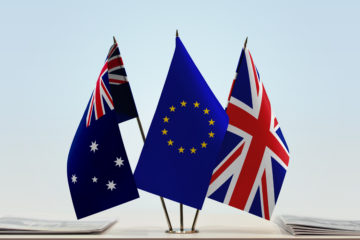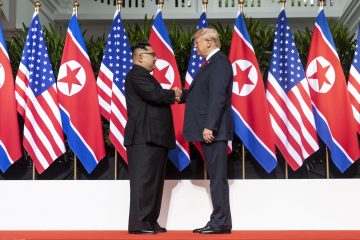
What the History of Australian Independence can tell us about Britain’s Journey ahead
Debates over Brexit have been “dominated by a yearning for restoring UK sovereignty”. The Brexit vote during June 2016 was declared as an independence day by key members of the leave campaign. Similarly, such sentiments have been used about the exit day on which the UK is to leave the EU under the European Union (Withdrawal) Act Independence is often perceived as one decisive moment – a clean break with the past and a new beginning. However, this article posits that independence might be better thought of as a gradual process, characterized by both change and continuity. Taking the example of the development of Australia’s foreign policy post-federation, the article showcases that de jure sovereignty does not automatically or immediately result in de facto …
When the technical is political: Colombia’s export of security expertise
In a farewell speech to Colombia’s armed forces last year just prior to leaving office, ex-president Juan Manuel Santos boasted: “Today we have the best armed forces in our history.” Proudly, he added: “We’re a global reference!” And indeed, it seems as though Colombia had opened a new chapter. Since the 2016 peace accords with the country’s largest guerrilla organisation, the FARC (Revolutionary Armed Forces of Colombia), the nation appears to be on an uphill climb. With the FARC at the negotiation table, the story goes, the country was finally able to look ahead and dedicate its resources to transition and reconstruction: the reintegration of former combatants, the redistribution of formerly occupied territories, and the recovery of an economy weakened by decades …

Arming without Aiming? India’s Quest for Material Power and International Influence
In terms of material military power, India does not lag far behind the traditional materially powerful states. The country ranks among the top in terms of the size of and investments in its army, air force, and navy. Furthermore, in 1998, India revealed to the world that it possessed nuclear weapons. Yet, while India has sufficient material power to be categorized as a powerful state, the country does not always think and act like a materially powerful state. For India, more material power has not been necessarily enough to ensure greater international influence. Thus far, India can be accused of ‘arming without aiming’ in its quest for greater international influence. India’s Material Powers India’s raw military power is impressive. The …

Three reasons why foreign policy negotiations during the 2020 campaign season are a bad idea
“Deals are my art form. Other people paint beautifully on canvas or write wonderful poetry. I like making deals, preferably big deals.” [Donald Trump, The Art of the Deal] If history is any guide, there is reason to hope that President Trump belatedly takes up painting this campaign season. Over the next 18 months or so, as always seems to be the case in American politics, the looming presence of a presidential election will throw up a whole host of impediments to the pursuit of optimal diplomatic agreements abroad, including with China, Afghanistan and North Korea. A brief look back at critical negotiations during the wars in Vietnam and Iraq suggests a crucial lesson: electoral politics and diplomacy do not mix …









